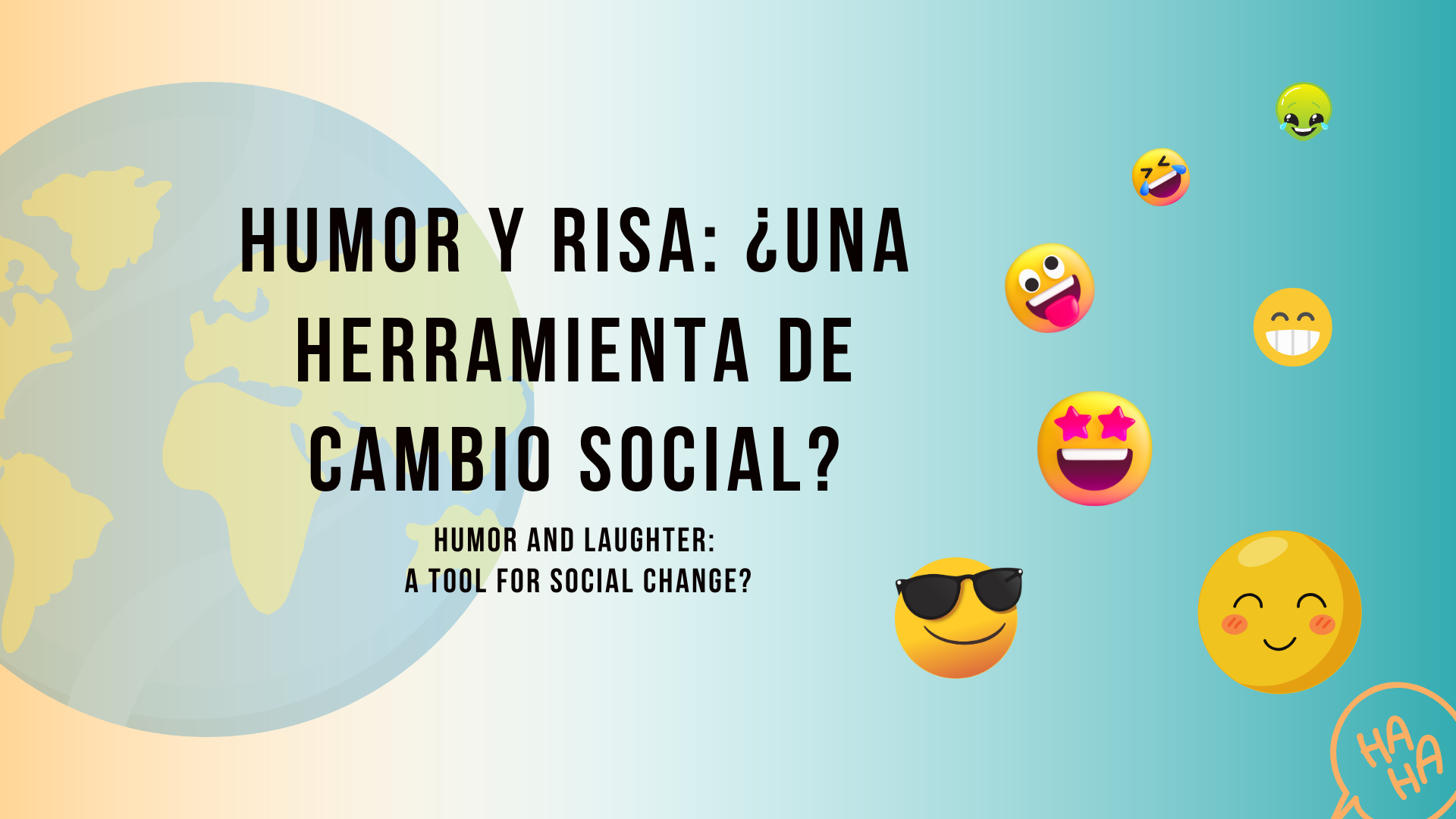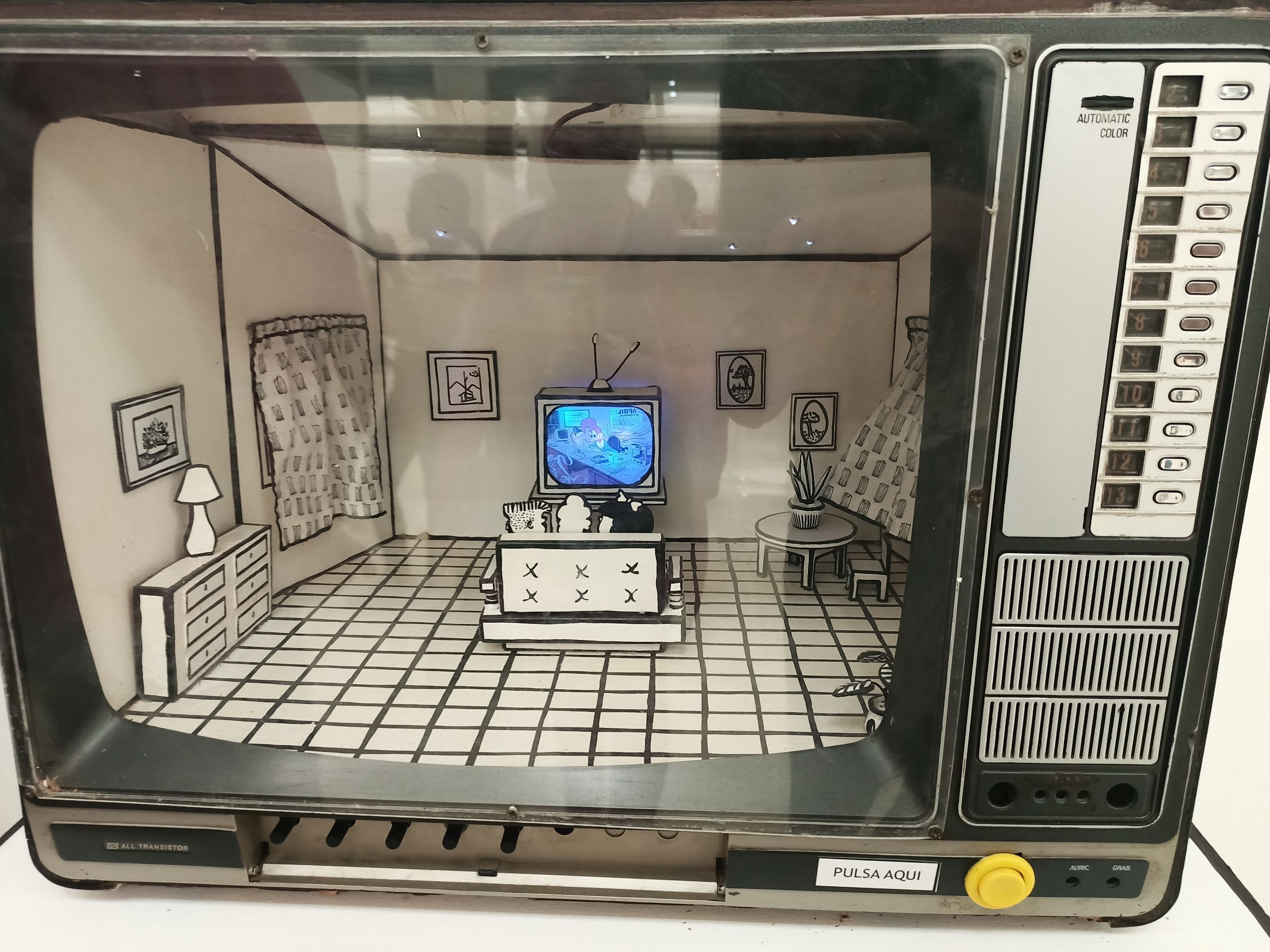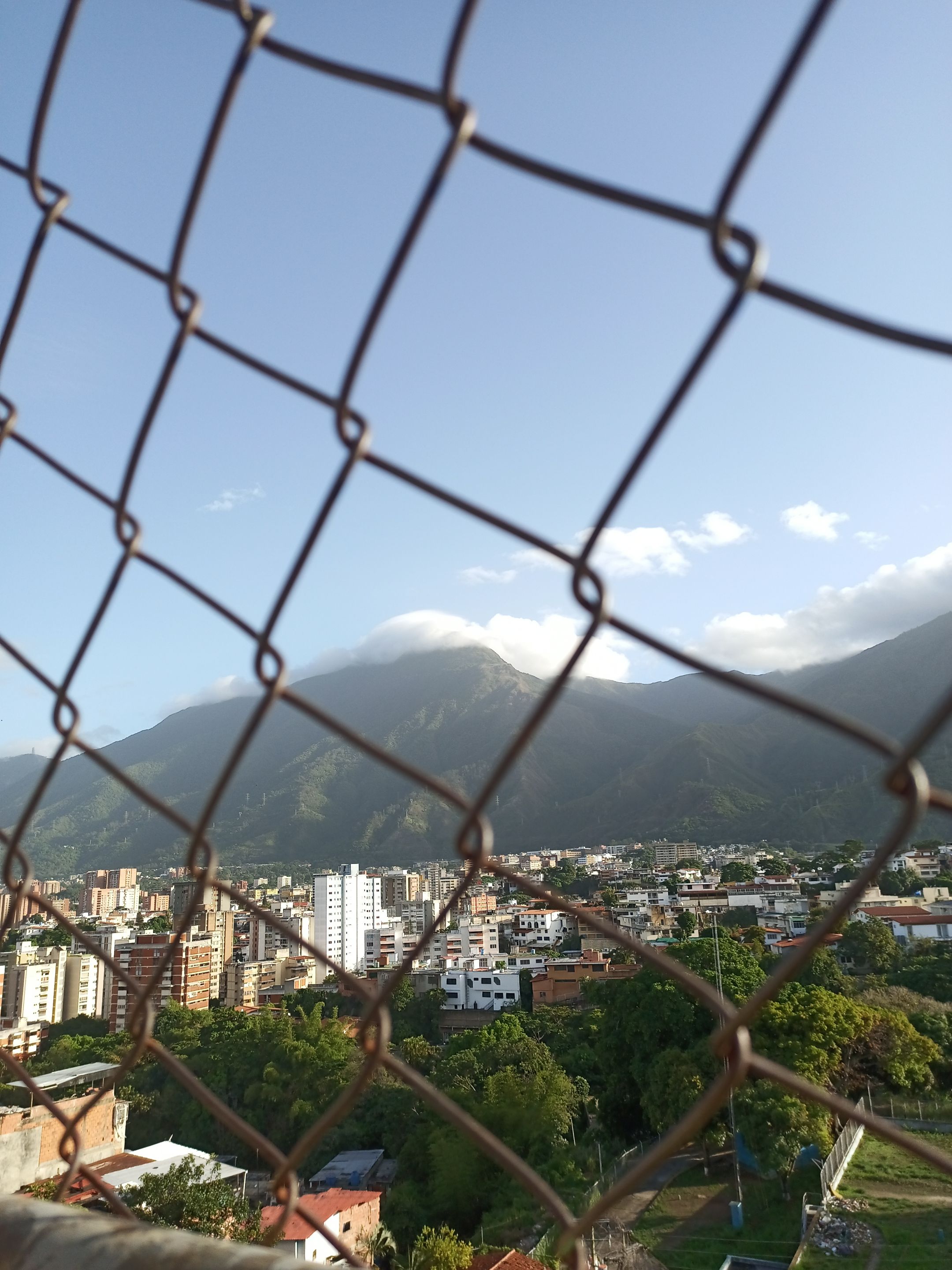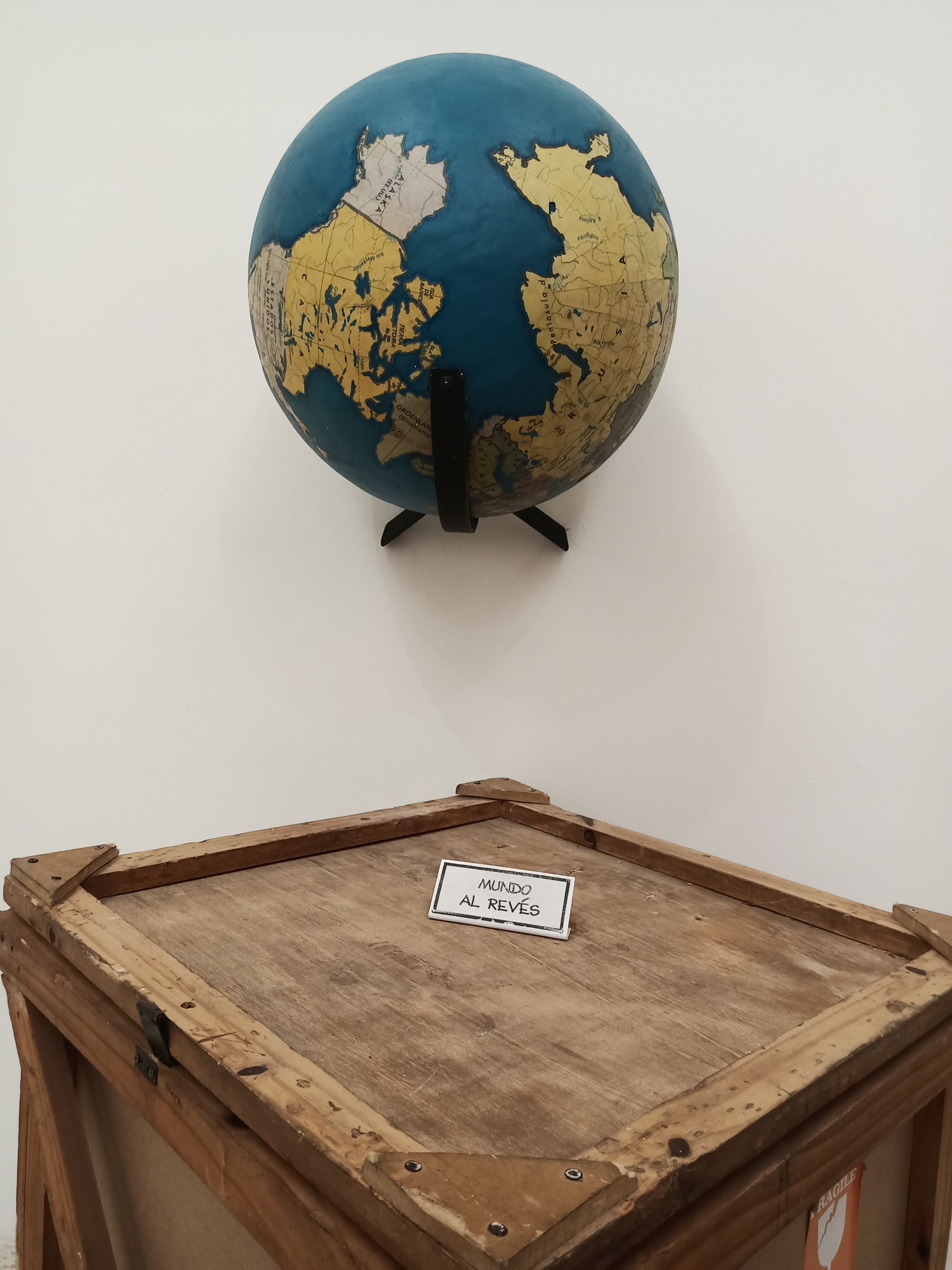 Own cover
Saludos
La comunidad de Humanitas propone este día 20 de agosto una interrogante que llamó poderosamente mi atención: ¿Puede el humor y la risa ser una herramienta de cambio social?. Al leer esta pregunta inmediatamente y sin duda respondí un SÍ glorioso acompañado de cantos gregorianos.
Aunque francamente, no recuerdo haberme detenido a investigar tan profundamente sobre la risa y el humor, así que aproveché un instante para leer un poco y ubiqué principalmente algunos aportes más centrado en los basamentos filosóficos como cimientos de la sabiduría de la humanidad.
Me gustó encontrar en el planteamiento aristotélico en Ética para Nicómaco Libro IV, del cual me permito parafrasear un poco sobre sus ideas, dice que: quienes se exceden en sus gracias son vulgares, sus chistes afectan a las personas (cuando la burla se centra en lo estético por feo o deforme); mientras que hay chistes de buen gusto que son ingeniosos y hechos por inteligentes.
Comparto a continuación unas premisas que creo indispensable para este tema de hoy:
> Hi!
> On August 20, the Humanitas community posed a question that caught my attention: Can humor and laughter be a tool for social change? Upon reading this question, I immediately and without hesitation responded with a resounding YES, accompanied by Gregorian chants.
> Although, frankly, I don't remember ever having stopped to investigate laughter and humor in such depth, so I took a moment to read a little and found mainly some contributions more focused on the philosophical foundations as the basis of human wisdom.
> I liked finding in Aristotle's approach in Nicomachean Ethics Book IV, from which I will paraphrase his ideas a little, that those who overdo their jokes are vulgar, their jokes affect people (when the mockery focuses on aesthetics because of ugliness or deformity); while there are jokes in good taste that are witty and made by intelligent people.
> Below, I share some premises that I believe are essential to today's topic:
#
Own cover
Saludos
La comunidad de Humanitas propone este día 20 de agosto una interrogante que llamó poderosamente mi atención: ¿Puede el humor y la risa ser una herramienta de cambio social?. Al leer esta pregunta inmediatamente y sin duda respondí un SÍ glorioso acompañado de cantos gregorianos.
Aunque francamente, no recuerdo haberme detenido a investigar tan profundamente sobre la risa y el humor, así que aproveché un instante para leer un poco y ubiqué principalmente algunos aportes más centrado en los basamentos filosóficos como cimientos de la sabiduría de la humanidad.
Me gustó encontrar en el planteamiento aristotélico en Ética para Nicómaco Libro IV, del cual me permito parafrasear un poco sobre sus ideas, dice que: quienes se exceden en sus gracias son vulgares, sus chistes afectan a las personas (cuando la burla se centra en lo estético por feo o deforme); mientras que hay chistes de buen gusto que son ingeniosos y hechos por inteligentes.
Comparto a continuación unas premisas que creo indispensable para este tema de hoy:
> Hi!
> On August 20, the Humanitas community posed a question that caught my attention: Can humor and laughter be a tool for social change? Upon reading this question, I immediately and without hesitation responded with a resounding YES, accompanied by Gregorian chants.
> Although, frankly, I don't remember ever having stopped to investigate laughter and humor in such depth, so I took a moment to read a little and found mainly some contributions more focused on the philosophical foundations as the basis of human wisdom.
> I liked finding in Aristotle's approach in Nicomachean Ethics Book IV, from which I will paraphrase his ideas a little, that those who overdo their jokes are vulgar, their jokes affect people (when the mockery focuses on aesthetics because of ugliness or deformity); while there are jokes in good taste that are witty and made by intelligent people.
> Below, I share some premises that I believe are essential to today's topic:
#
 ### 1. Filtrar información y entorno:
Históricamente hemos provocado la risa a costa de la burla hacia otras personas, grupos, costumbres o circunstancias, aún después de tantos miles de años no distamos de esta situación, se repite incesantemente, ese afán de superioridad entre personas, comunidades y culturas. Para Platón la risa es fuente de placer y sufrimiento, debe filtrarse y asumirla desde la templanza y la razón, yo añadiría desde la compasión y el respeto.
Concuerdo totalmente con la idea que si la risa proviene de la burla, bufonería y que afecte a una persona o colectividad, no puede ser de ninguna manera una herramienta de cambio social, por el contrario adquiere poder y fuerza de los fuertes contra los más débiles, pienso que por eso hay tanta segregación por motivos de color, culturas, practicas religiosas, etc.
Pienso que el llamado es a observar con lupa a qué estamos respondiendo con risas, sabiendo que incluso podemos ser víctimas de estrategias de distracción y dominación mediante las redes sociales, las noticias amarillistas, comunidades etc. Hoy más que nunca: necesitamos discernir, pasar por un filtro todo el bombardeo de información en una sociedad tan acelerada y cada vez más distorsionada.
Algo que valoro de nuestra venezolanidad es asumir todo con humor, en toda la tempestad que hemos vivido ha sido de nuestras mejores estrategias para sobrevivir. Pero también tenemos el reto a no pecar por inocentes y considerar que todo es juego, hay cosas que asumir con mucha responsabilidad. No haré referencia a ningún caso, pienso que en general tenemos una tarea titánica por delante.
> 1. Filtering information and environment:
> Historically, we have provoked laughter at the expense of mocking other people, groups, customs, or circumstances. Even after so many thousands of years, we are not far from this situation; it repeats itself incessantly, this desire for superiority among people, communities, and cultures. For Plato, laughter is a source of pleasure and suffering; it must be filtered and approached with temperance and reason. I would add compassion and respect.
> I totally agree with the idea that if laughter comes from mockery, buffoonery, and affects a person or community, it cannot in any way be a tool for social change. On the contrary, it acquires power and strength from the strong against the weakest. I think that is why there is so much segregation based on color, culture, religious practices, etc.
> I think the call is to take a close look at what we are responding to with laughter, knowing that we can even be victims of distraction and domination strategies through social media, sensationalist news, communities, etc. Today more than ever, we need to discern, to filter through the bombardment of information in such a fast-paced and increasingly distorted society.
> Something I value about our Venezuelan identity is taking everything with humor. Throughout all the turmoil we have experienced, this has been one of our best strategies for survival. But we are also challenged not to be naive and think that everything is a game. There are things that must be taken very seriously. I will not refer to any specific case, but I think that, in general, we have a titanic task ahead of us.
#
### 1. Filtrar información y entorno:
Históricamente hemos provocado la risa a costa de la burla hacia otras personas, grupos, costumbres o circunstancias, aún después de tantos miles de años no distamos de esta situación, se repite incesantemente, ese afán de superioridad entre personas, comunidades y culturas. Para Platón la risa es fuente de placer y sufrimiento, debe filtrarse y asumirla desde la templanza y la razón, yo añadiría desde la compasión y el respeto.
Concuerdo totalmente con la idea que si la risa proviene de la burla, bufonería y que afecte a una persona o colectividad, no puede ser de ninguna manera una herramienta de cambio social, por el contrario adquiere poder y fuerza de los fuertes contra los más débiles, pienso que por eso hay tanta segregación por motivos de color, culturas, practicas religiosas, etc.
Pienso que el llamado es a observar con lupa a qué estamos respondiendo con risas, sabiendo que incluso podemos ser víctimas de estrategias de distracción y dominación mediante las redes sociales, las noticias amarillistas, comunidades etc. Hoy más que nunca: necesitamos discernir, pasar por un filtro todo el bombardeo de información en una sociedad tan acelerada y cada vez más distorsionada.
Algo que valoro de nuestra venezolanidad es asumir todo con humor, en toda la tempestad que hemos vivido ha sido de nuestras mejores estrategias para sobrevivir. Pero también tenemos el reto a no pecar por inocentes y considerar que todo es juego, hay cosas que asumir con mucha responsabilidad. No haré referencia a ningún caso, pienso que en general tenemos una tarea titánica por delante.
> 1. Filtering information and environment:
> Historically, we have provoked laughter at the expense of mocking other people, groups, customs, or circumstances. Even after so many thousands of years, we are not far from this situation; it repeats itself incessantly, this desire for superiority among people, communities, and cultures. For Plato, laughter is a source of pleasure and suffering; it must be filtered and approached with temperance and reason. I would add compassion and respect.
> I totally agree with the idea that if laughter comes from mockery, buffoonery, and affects a person or community, it cannot in any way be a tool for social change. On the contrary, it acquires power and strength from the strong against the weakest. I think that is why there is so much segregation based on color, culture, religious practices, etc.
> I think the call is to take a close look at what we are responding to with laughter, knowing that we can even be victims of distraction and domination strategies through social media, sensationalist news, communities, etc. Today more than ever, we need to discern, to filter through the bombardment of information in such a fast-paced and increasingly distorted society.
> Something I value about our Venezuelan identity is taking everything with humor. Throughout all the turmoil we have experienced, this has been one of our best strategies for survival. But we are also challenged not to be naive and think that everything is a game. There are things that must be taken very seriously. I will not refer to any specific case, but I think that, in general, we have a titanic task ahead of us.
#
 ### 2. Tejer el bien común
Creo que la risa y el humor pueden convertirse en catalizadores para la transformación social, mediante agentes, ideas, movimientos y otras maneras de contribuir con nuestro entorno. Ya sabemos que la risa es un lenguaje universal y el humor suele ser un medio efectivo para realizar acciones sociales, discursos impactantes, despertar identidad y sentidos de luchas comunes, es una manera estratégica de ganar corazones, pero ¿a beneficio de quién o de qué?.
Yo creo que una manera de identificar y diferenciar el camino correcto es cuando la única bandera es el bien común, desde el humor sano, respetuoso, alegre, ese que despierta pasión, recuerdos, historia, sentido de pertenencia, que no genera acción con daño, que evita la cizaña y la división entre las personas, especialmente porque vivimos en un mundo muy polarizado.
A mi me encanta el humor que produce risas que conecten con un propósito, que ayuden a voltear la mirada hacia nuestra humanidad, a mirar con ojo crítico, a explorar, a reconocernos y encontrarnos mediante el juego, la creatividad, la esperanza y la ilusión.
#
> 2. The common good
> I believe that laughter and humor can become catalysts for social transformation, through agents, ideas, movements, and other ways of contributing to our environment. We already know that laughter is a universal language and humor is often an effective means of carrying out social actions, delivering powerful speeches, awakening identity and a sense of common struggles. It is a strategic way to win hearts, but to whose or what benefit?
> I believe that one way to identify and differentiate the right path is when the only banner is the common good, through healthy, respectful, joyful humor that awakens passion, memories, history, and a sense of belonging, that does not generate harmful actions, and that avoids discord and division among people, especially because we live in a very polarized world.
> I love humor that produces laughter that connects with a purpose, that helps us turn our gaze toward our humanity, to look with a critical eye, to explore, to recognize and find ourselves through play, creativity, hope, and excitement.
#
### 2. Tejer el bien común
Creo que la risa y el humor pueden convertirse en catalizadores para la transformación social, mediante agentes, ideas, movimientos y otras maneras de contribuir con nuestro entorno. Ya sabemos que la risa es un lenguaje universal y el humor suele ser un medio efectivo para realizar acciones sociales, discursos impactantes, despertar identidad y sentidos de luchas comunes, es una manera estratégica de ganar corazones, pero ¿a beneficio de quién o de qué?.
Yo creo que una manera de identificar y diferenciar el camino correcto es cuando la única bandera es el bien común, desde el humor sano, respetuoso, alegre, ese que despierta pasión, recuerdos, historia, sentido de pertenencia, que no genera acción con daño, que evita la cizaña y la división entre las personas, especialmente porque vivimos en un mundo muy polarizado.
A mi me encanta el humor que produce risas que conecten con un propósito, que ayuden a voltear la mirada hacia nuestra humanidad, a mirar con ojo crítico, a explorar, a reconocernos y encontrarnos mediante el juego, la creatividad, la esperanza y la ilusión.
#
> 2. The common good
> I believe that laughter and humor can become catalysts for social transformation, through agents, ideas, movements, and other ways of contributing to our environment. We already know that laughter is a universal language and humor is often an effective means of carrying out social actions, delivering powerful speeches, awakening identity and a sense of common struggles. It is a strategic way to win hearts, but to whose or what benefit?
> I believe that one way to identify and differentiate the right path is when the only banner is the common good, through healthy, respectful, joyful humor that awakens passion, memories, history, and a sense of belonging, that does not generate harmful actions, and that avoids discord and division among people, especially because we live in a very polarized world.
> I love humor that produces laughter that connects with a purpose, that helps us turn our gaze toward our humanity, to look with a critical eye, to explore, to recognize and find ourselves through play, creativity, hope, and excitement.
#
 The world turned upside down
### 3. Elegir
Por otro lado y no menos importante, sabemos que está comprobado que la risa es beneficiosa para nuestra vida. Abundan los artículos en internet sobre cómo la risa aporta al bienestar emocional, mental y físico, ya sabemos que su efecto ayuda a reducir niveles de adrenalina, cortisol (hormona del estrés) y por supuesto contribuye a que nuestro estado de ánimo esté fortalecido, sintiendo alegría y felicidad, incluso nuestro cerebro recibe mayor oxígeno al reír, así que por supuesto que la risa es mágica.
Podemos elegir realizar terapias con profesionales y participar en actividades que motorizan estos estados emocionales tan anhelados mediante viajes, música, contacto con la naturaleza, cercanía con las personas que amamos. Buscar el buen vínculo con amistades, familia y grupos con fines comunes es clave.
Pienso que en ese mínimo poder de decisión que aún nos queda en algunas partes del mundo, podemos diariamente aprovecharlo desde el sentido común y el respeto.
Leía en un artículo de CNN Salud: "que la risa es condicionada por el contexto"; por eso soy consciente que esto que reflexiono hoy, no totaliza la población mundial, se que escribo de mi comodidad, con intenet y computadora a disposición para decir frescamente que la risa puede ser un cambio para el mundo. Lo verdaderamente importante es que hay lugares olvidados en el mundo donde las condiciones son mínimas, donde el miedo se apodera de la gente, donde no hay comida y donde quizás no hay razones para reír... hay desidia y dolor.
Tenemos un enorme trabajo por delante, uno muy complejo pero a la vez simple: lograr incidir en nuestro metro cuadrado con la mejor actitud, con los mejores valores, no dañar a nadie y lograr tejer vínculos fuertes para hacer pequeños cambios desde donde nos encontremos.
¿Qué piensas tú de la risa y el humor?.
#
> 3. Choose
> On the other hand, and no less important, we know that laughter has been proven to be beneficial to our lives. There are tons of articles online about how laughter contributes to emotional, mental, and physical well-being. We already know that it helps reduce adrenaline and cortisol (the stress hormone) levels and, of course, helps boost our mood, making us feel joy and happiness. Even our brain gets more oxygen when we laugh, so of course laughter is magical.
> We can choose to undergo therapy with professionals and participate in activities that promote these much-desired emotional states through travel, music, contact with nature, and closeness to the people we love. Seeking good relationships with friends, family, and groups with common goals is key.
> I think that in the minimal power of decision that we still have in some parts of the world, we can take advantage of it every day through common sense and respect.
> I read in a CNN Health article that “laughter is conditioned by context.” That's why I'm aware that what I'm reflecting on today doesn't apply to the entire world population. I know that I'm writing from a position of comfort, with internet and a computer at my disposal, to boldly say that laughter can change the world. What is truly important is that there are forgotten places in the world where conditions are minimal, where fear takes hold of people, where there is no food, and where there may be no reason to laugh... there is apathy and pain.
> We have a huge task ahead of us, one that is very complex but at the same time simple: to influence our own square meter with the best attitude, with the best values, without harming anyone, and to forge strong bonds to make small changes from where we are.
> What do you think about laughter and humor?
The world turned upside down
### 3. Elegir
Por otro lado y no menos importante, sabemos que está comprobado que la risa es beneficiosa para nuestra vida. Abundan los artículos en internet sobre cómo la risa aporta al bienestar emocional, mental y físico, ya sabemos que su efecto ayuda a reducir niveles de adrenalina, cortisol (hormona del estrés) y por supuesto contribuye a que nuestro estado de ánimo esté fortalecido, sintiendo alegría y felicidad, incluso nuestro cerebro recibe mayor oxígeno al reír, así que por supuesto que la risa es mágica.
Podemos elegir realizar terapias con profesionales y participar en actividades que motorizan estos estados emocionales tan anhelados mediante viajes, música, contacto con la naturaleza, cercanía con las personas que amamos. Buscar el buen vínculo con amistades, familia y grupos con fines comunes es clave.
Pienso que en ese mínimo poder de decisión que aún nos queda en algunas partes del mundo, podemos diariamente aprovecharlo desde el sentido común y el respeto.
Leía en un artículo de CNN Salud: "que la risa es condicionada por el contexto"; por eso soy consciente que esto que reflexiono hoy, no totaliza la población mundial, se que escribo de mi comodidad, con intenet y computadora a disposición para decir frescamente que la risa puede ser un cambio para el mundo. Lo verdaderamente importante es que hay lugares olvidados en el mundo donde las condiciones son mínimas, donde el miedo se apodera de la gente, donde no hay comida y donde quizás no hay razones para reír... hay desidia y dolor.
Tenemos un enorme trabajo por delante, uno muy complejo pero a la vez simple: lograr incidir en nuestro metro cuadrado con la mejor actitud, con los mejores valores, no dañar a nadie y lograr tejer vínculos fuertes para hacer pequeños cambios desde donde nos encontremos.
¿Qué piensas tú de la risa y el humor?.
#
> 3. Choose
> On the other hand, and no less important, we know that laughter has been proven to be beneficial to our lives. There are tons of articles online about how laughter contributes to emotional, mental, and physical well-being. We already know that it helps reduce adrenaline and cortisol (the stress hormone) levels and, of course, helps boost our mood, making us feel joy and happiness. Even our brain gets more oxygen when we laugh, so of course laughter is magical.
> We can choose to undergo therapy with professionals and participate in activities that promote these much-desired emotional states through travel, music, contact with nature, and closeness to the people we love. Seeking good relationships with friends, family, and groups with common goals is key.
> I think that in the minimal power of decision that we still have in some parts of the world, we can take advantage of it every day through common sense and respect.
> I read in a CNN Health article that “laughter is conditioned by context.” That's why I'm aware that what I'm reflecting on today doesn't apply to the entire world population. I know that I'm writing from a position of comfort, with internet and a computer at my disposal, to boldly say that laughter can change the world. What is truly important is that there are forgotten places in the world where conditions are minimal, where fear takes hold of people, where there is no food, and where there may be no reason to laugh... there is apathy and pain.
> We have a huge task ahead of us, one that is very complex but at the same time simple: to influence our own square meter with the best attitude, with the best values, without harming anyone, and to forge strong bonds to make small changes from where we are.
> What do you think about laughter and humor?
Fuentes (Sources):
Translator: DeepL Own photos